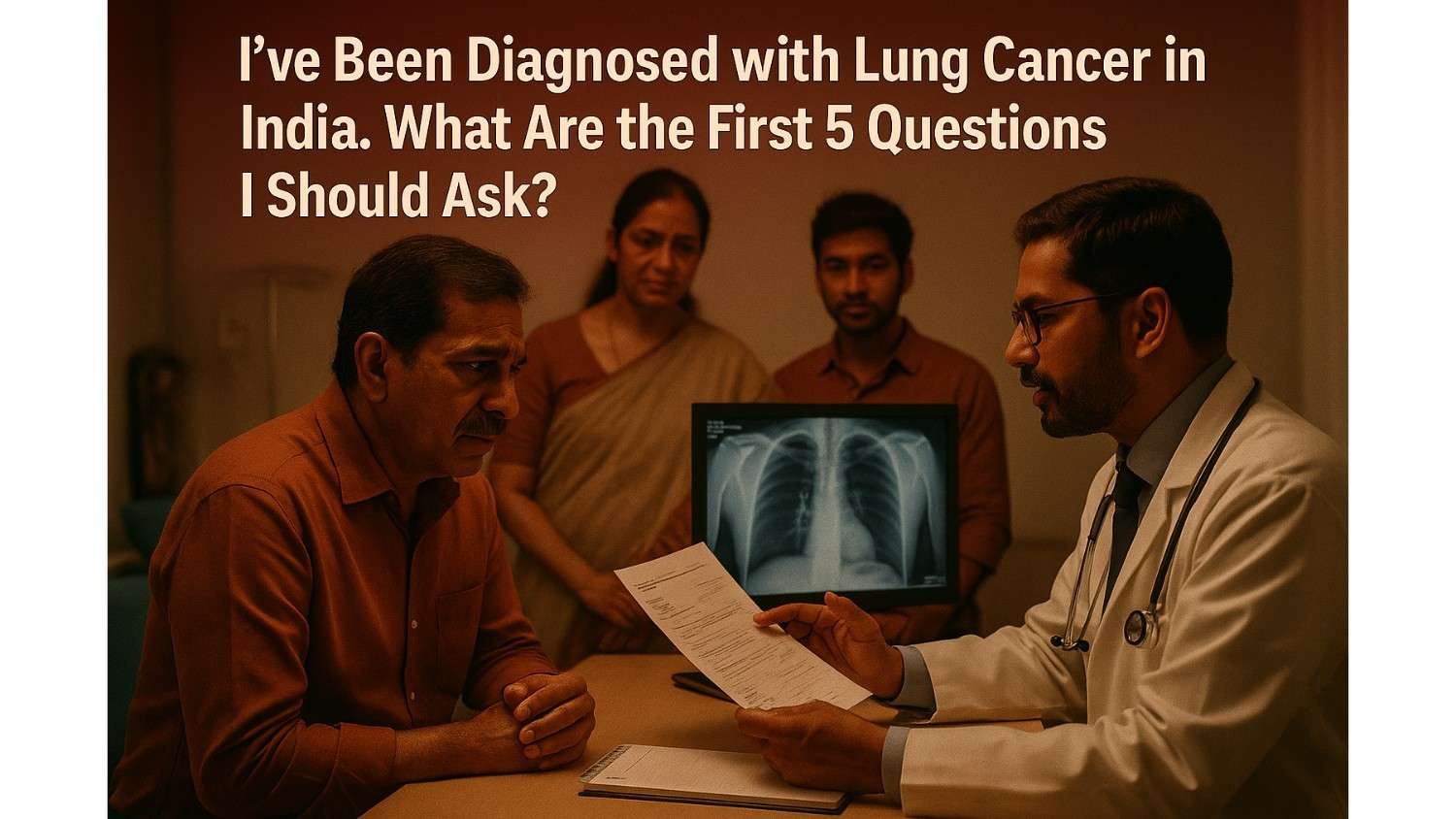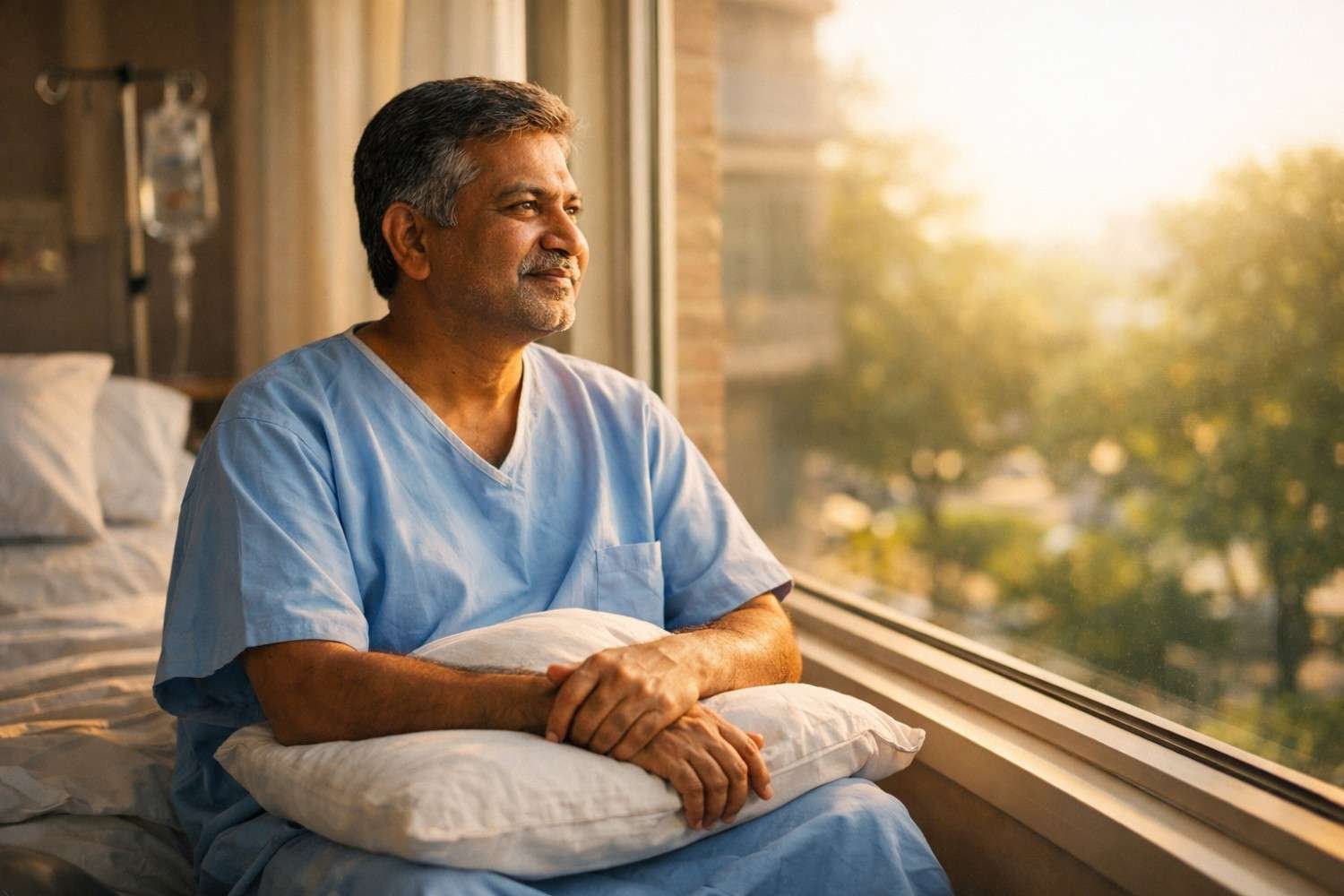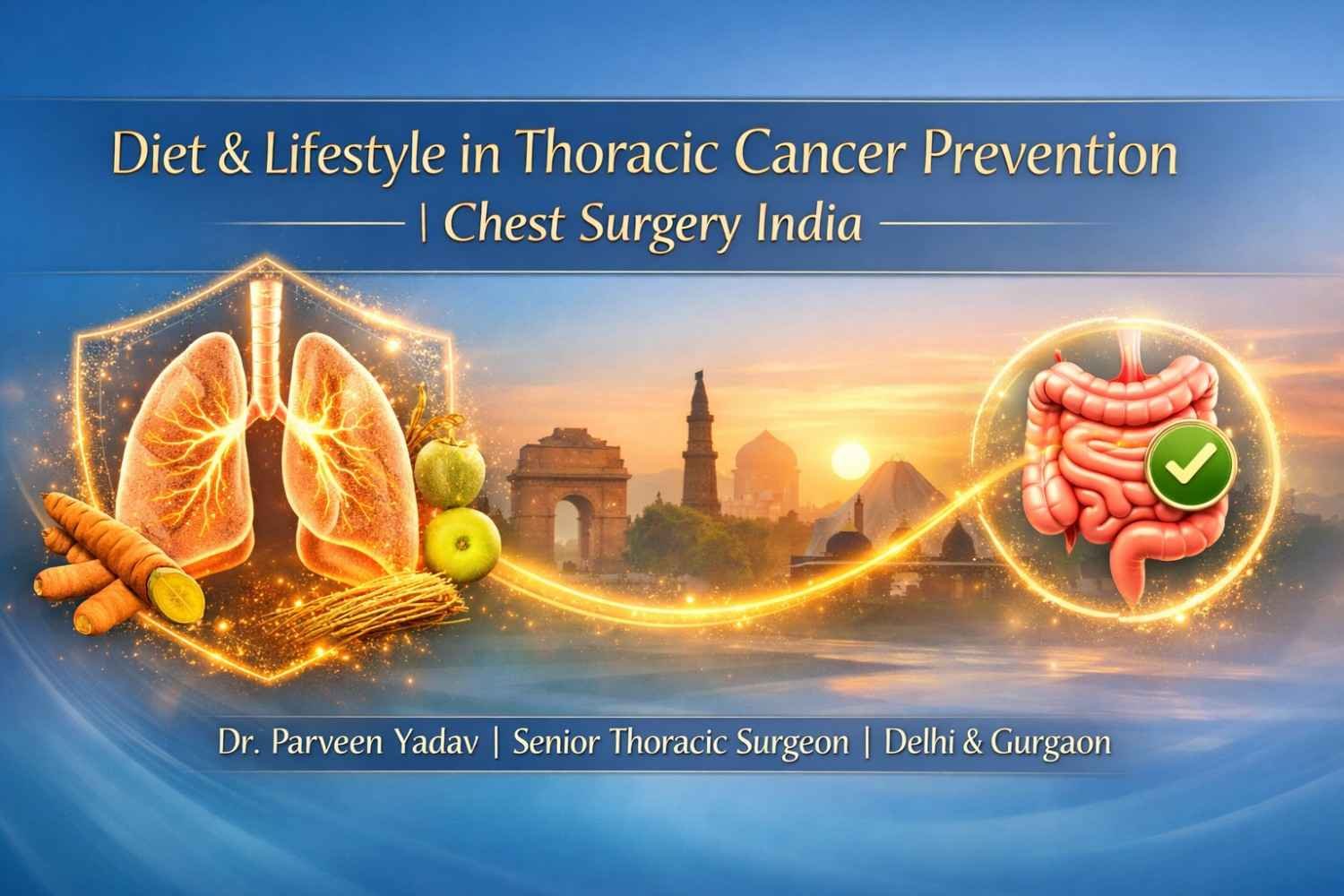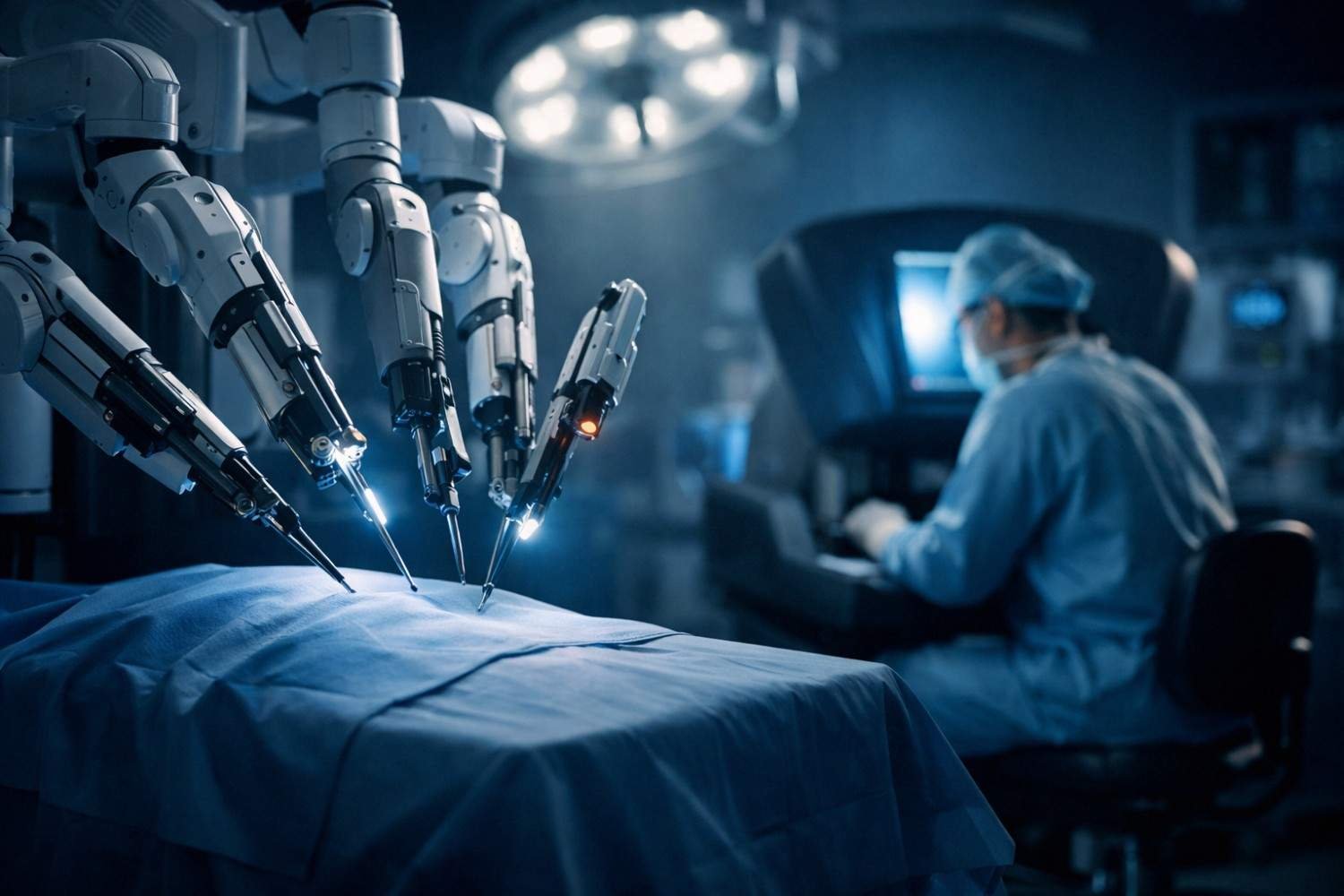

Hello, I am Dr. Parveen Yadav, a thoracic onco-surgeon based in Gurgaon. Over my 18 years in this field, I have sat with thousands of patients and their families right after they received the words they dreaded most: "You have lung cancer". I understand the storm of emotions that follows the shock, the fear, the confusion. Your world suddenly feels like it's spinning, and a hundred questions are racing through your mind, all at once.
In these first few moments, knowledge is your greatest ally. Being prepared for your first consultation with a lung cancer specialist in India can transform fear into focus and confusion into clarity. It empowers you to become an active partner in your own treatment journey.
This article is not just a list of questions. It is a roadmap. It’s the conversation starter I wish every newly diagnosed patient in India had. Let’s walk through it together, step by step, so you can enter your doctor’s office with confidence and leave with a clear plan.
This is the most fundamental question. It moves you from the terrifying, abstract idea of "cancer" to a specific, manageable medical condition. The answer to this question forms the bedrock of your entire treatment plan.
First, you need to know that "lung cancer" is not a single disease. There are two main categories, and your doctor will likely use one of these names :
Knowing the type is crucial because it tells your medical team about the cancer's behaviour and which treatments are likely to be most effective.
The "stage" of your cancer simply tells you how far it has spread. Think of it like a location tracker. Doctors use a simple I to IV system :
The stage is one of the most important factors in determining your prognosis and treatment options. However, and this is critical, please do not rush to Google the survival statistics for your stage. Those numbers are often outdated and don't account for your personal health, the specific characteristics of your tumour, or the incredible advances in treatment we have today. Your stage is a starting point for a conversation, not a final verdict.
Here in India, we face a unique diagnostic challenge. The symptoms of early lung cancer can sometimes mimic other common respiratory illnesses, including tuberculosis. This can lead to delays in getting the correct diagnosis. This is why it is absolutely vital to consult a specialist—a thoracic surgeon or a pulmonologist—who has the experience to look beyond the obvious and ensure your diagnosis is accurate from day one.
In modern cancer care, the initial biopsy that confirms "cancer" is just the beginning. The most important breakthroughs in lung cancer treatment in the last decade have come from our ability to understand the specific genetic makeup of your tumour. This is where biomarker testing comes in.
Think of your cancer as a house with many locked doors. The initial biopsy tells us it's a house, but biomarker testing gives us the specific keys to unlock those doors. This testing, also called molecular profiling, is done on the tissue sample from your biopsy to look for specific genetic mutations or proteins on the cancer cells.
This is not just an academic exercise; it has a direct and profound impact on your treatment. According to the National Cancer Grid of India, certain biomarker tests are now considered essential for guiding treatment. Some of the most important markers your doctor will look for include:
If your tumour tests positive for a marker like EGFR, it's a game-changer. It could mean that the best first treatment for you is not traditional chemotherapy, but a highly effective pill known as a "targeted therapy". These drugs are designed to attack the cancer cells with the specific mutation, often with fewer side effects than chemotherapy. Asking about biomarker testing shows you are ready to explore the most advanced and personalised lung cancer treatment in India.
Once your type, stage, and biomarker status are known, your oncologist can lay out a comprehensive treatment plan. It's important that you understand every option available, not just the one being recommended first.
Modern lung cancer care uses a combination of powerful tools. Your plan will likely involve one or more of the following :
It's crucial to have an honest conversation about the objective of your treatment. The goal can be different depending on the stage of your cancer :
Your doctor may also talk about adjuvant therapy (treatment given after the main treatment, like surgery, to kill any remaining cells) or neoadjuvant therapy (treatment given before surgery to shrink the tumour).
Treating lung cancer is a team sport. You will not be dealing with just one doctor, but a group of specialists working together. You also have the right to ensure the team and the plan are the absolute best fit for you.
A good lung cancer hospital in India will have a multidisciplinary team. The key players on your team will likely include :
Let me be very clear: seeking a second opinion is not a sign of distrust in your doctor. It is a standard, smart, and highly recommended step in the cancer journey. A second opinion can:
As a lung cancer specialist in India, I firmly believe that every patient deserves this clarity. That is why I offer a 100% free and confidential second opinion service. You can securely upload your reports, and I will personally review your case to provide guidance, helping you make informed decisions with confidence.
A cancer diagnosis doesn't just affect your body; it affects your entire life—your work, your family, and your finances. Addressing these practical concerns head-on is a vital part of preparing for the road ahead.
Cost is a major source of anxiety for families, and it's a conversation you must have with your treatment team. While costs vary greatly depending on the hospital and city, here are some approximate figures to give you a starting point for discussion :
Please note: These are estimates from 2024 and can vary. They are intended to be a guide for your conversation.
Ask your hospital if they have a financial counsellor who can help you understand the costs, navigate your insurance policy, and explore any available financial aid schemes.
Ask your doctor how treatment will impact your daily life.
Facing a lung cancer diagnosis is daunting, but you are not powerless. By asking these five questions, you are taking the first and most important step: becoming an informed, empowered patient.
Remember to take a family member or a trusted friend with you to your appointments. They can help you listen, take notes, and remember the details. Write down your questions beforehand so you don't forget anything in the moment.
This journey is a marathon, not a sprint. Be kind to yourself. Lean on your support system. And know that with the right team and the right information, there is every reason to be hopeful.

18+ Yrs Exp | 5,700+ Thoracic & Robotic Cancer Surgeries
Dr. Parveen Yadav is a Director and Senior Consultant in Thoracic and Surgical Oncology, specializing in minimally invasive and robotic lung and esophageal surgeries, with advanced training from AIIMS and Tata Memorial Hospital.
View Full Profile Pain After Thoracic Surgery: Tips for Smooth Recovery
Pain After Thoracic Surgery: Tips for Smooth Recovery
 Diet & Lifestyle for Thoracic Cancer Prevention | Dr. Parveen Yadav
Diet & Lifestyle for Thoracic Cancer Prevention | Dr. Parveen Yadav
 Robotic Thoracic Surgery: How Da Vinci Technology is Revolutionizing Chest Procedures
Robotic Thoracic Surgery: How Da Vinci Technology is Revolutionizing Chest Procedures
Struggling with pain after chest surgery? Dr. Parveen Yadav shares expert recovery tips, causes of shoulder pain, PTPS signs, and what your discharge sheet won't tell you.
Discover how diet, breathing exercises & daily habits help prevent and recover from thoracic cancer. Expert insights from Dr. Parveen Yadav, Chest Surgery India
Discover how Da Vinci robotic surgery is transforming chest procedures in Gurgaon. Less pain, faster recovery & expert care by a certified thoracic surgeon
Copyright 2026 © Dr .Parveen Yadav all rights reserved.
Proudly Scaled by Public Media Solution!